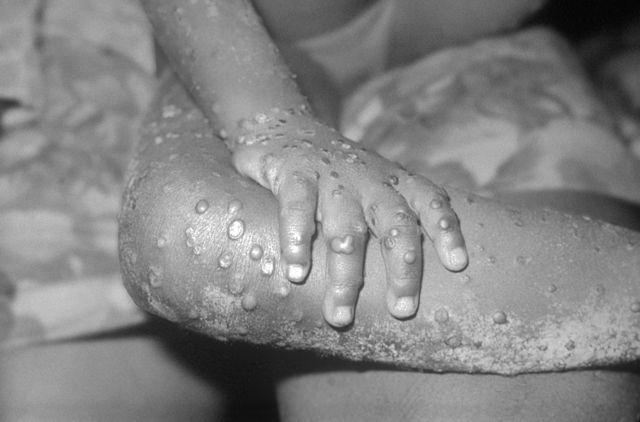Health
38-year-old Nigerian national tested positive for monkeypox in Singapore — MOH

Monkeypox is a rare disease which is primarily transmitted to humans from animals. One can acquire the disease when he or she comes into close contact with infected animals through bites or scratches, and consumption of bushmeat. (File photo: CDC Public Health website via wikimedia commons, public domain)
An imported case of monkeypox infection in Singapore has been confirmed by the Ministry of Health (MOH) on Thursday, May 9.
According to the MOH, a 38-year-old Nigerian national, who arrived in Singapore last April 28 to attend a workshop, tested positive for monkeypox last May 8.
Monkeypox is a rare disease which is primarily transmitted to humans from animals. One can acquire the disease when he or she comes into close contact with infected animals through bites or scratches, and consumption of bushmeat.
Prior to his workshop, the MOH reported that the patient attended first a wedding in Nigeria where he may have consumed bushmeat. Two days after his arrival in Singapore, the Nigerian national developed a fever, muscle ache, and skin rash which show symptoms of the monkeypox virus.
The patient was only brought to Tan Tock Seng Hospital by an ambulance on May 7 and was, later on, referred to the National Center for Infectious Diseases (NCID) where he is currently warded in an isolation ward and is in stable condition.
Based on its investigation and contact tracing, the MOH identified 18 participants and trainers who attended the same workshop, one staff, and four hotel staff who had close contact with the Nigerian national. These people have been assessed by the NCID and were given vaccination to prevent the disease.
As part of precautionary measures, they will also be quarantined and monitored for 21 days starting from their date of exposure to the patient. One workshop participant, however, left Singapore last May 5, two days before the patient was diagnosed. Although he reported that to the MOH that he remains well without experiencing any symptoms, the ministry still informed the public health authority of the participant’s home country.
Professor Leo Yee Sin, executive director of NCID, said the risk of monkeypox spreading within the community in Singapore is “low.”
“There is no evidence to date that human-to-human transmission alone can sustain monkeypox infections in the human population,” he said.
“On average, each infected person transmits the infection to less than one other person. This is much less infectious than the common flu. The chain of transmission can also be broken through contact tracing and quarantine of close contacts,” he added.
The MOH also said the disease is usually self-limiting, with most patients recovering within two to three weeks.
Despite this, the ministry still advised the public to maintain a high standard of personal hygiene, avoid direct contact with skin lesions of infected living, dead persons, animals or objects contaminated with infectious fluids, as well as contact with wild animals and consumption of bushmeat.
Travelers returning home from monkeypox-affected areas are also advised to seek immediate medical attention if they develop any symptoms of the disease.





















